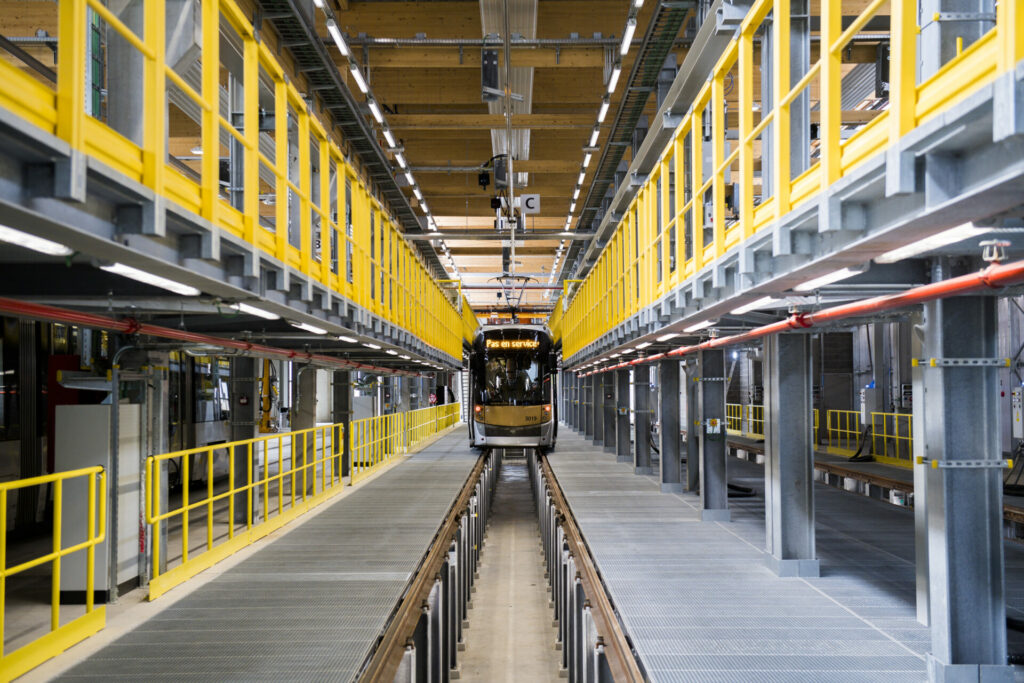Brussels commuters can look forward to big improvements in local public transport, as the European Investment Bank (EIB) and the Capital Region have signed a €475 million loan agreement to modernise the region’s urban transport fleet.
The loan will finance 94 electric buses, 90 trams and 43 metro trains, and will renew 63 kilometres of track on existing tram and metro networks.
"This loan of €475 million will make it possible to purchase new electric buses, new trams, and metros, and modernise the tracks," Brussels Minister-President Rudi Vervoort, who hailed the partnership with the EIB as a "historic agreement."
"Our agreement reinforces investment in public transport in Brussels and is part of an overall plan to reduce traffic, improve air quality, and move the region towards an ecological transition."
On track for a cleaner future
Brussels has long suffered economic losses from traffic jams and the health impact of air pollution, the EIB wrote in a press release. The regional government is looking to turn things around with its Good Move mobility plan that prioritises walking, cycling and public transport.
Once in place, the improved infrastructure and new rolling stock should make public transport more reliable, more frequent, and more comfortable – all with the ultimate aim of making public transport more appealing than driving.
"This is a historic first financial partnership between the EIB and the Brussels-Capital Region, providing a long-term loan of almost half a billion euros – a record figure," said EIB Vice-President Kris Peeters.
Brussels Mobility Minister Elke van den Brandt stressed that one-sixth of the Region's annual budget is invested in mobility: increasing the frequency and capacity of public transportation, building cycling and walking infrastructure, and investing in road safety.
Related News
- STIB tries out new types of tram stops in Brussels
- 'Like Russian roulette': Almost one person per day crosses Brussels Metro tracks
- Good Move: Brussels looks for alternatives to concrete blocks
Brussels Budget and Finance Minister Sven Gatz explained that the funds will pay for an improved network with greater automation.
STIB CEO Brieuc de Meeûs stressed the importance of these investments, which will allow the company to boost performance and look to the city's future mobility needs.
"More vehicles means more capacity and frequency. Tens of kilometres of tram tracks will be renewed, improving safety and comfort for passengers and locals. The metro will be modernised and a new line constructed to provide frequency and access for as many people as possible," he said. "These investments are essential for the future of mobility in Brussels."

